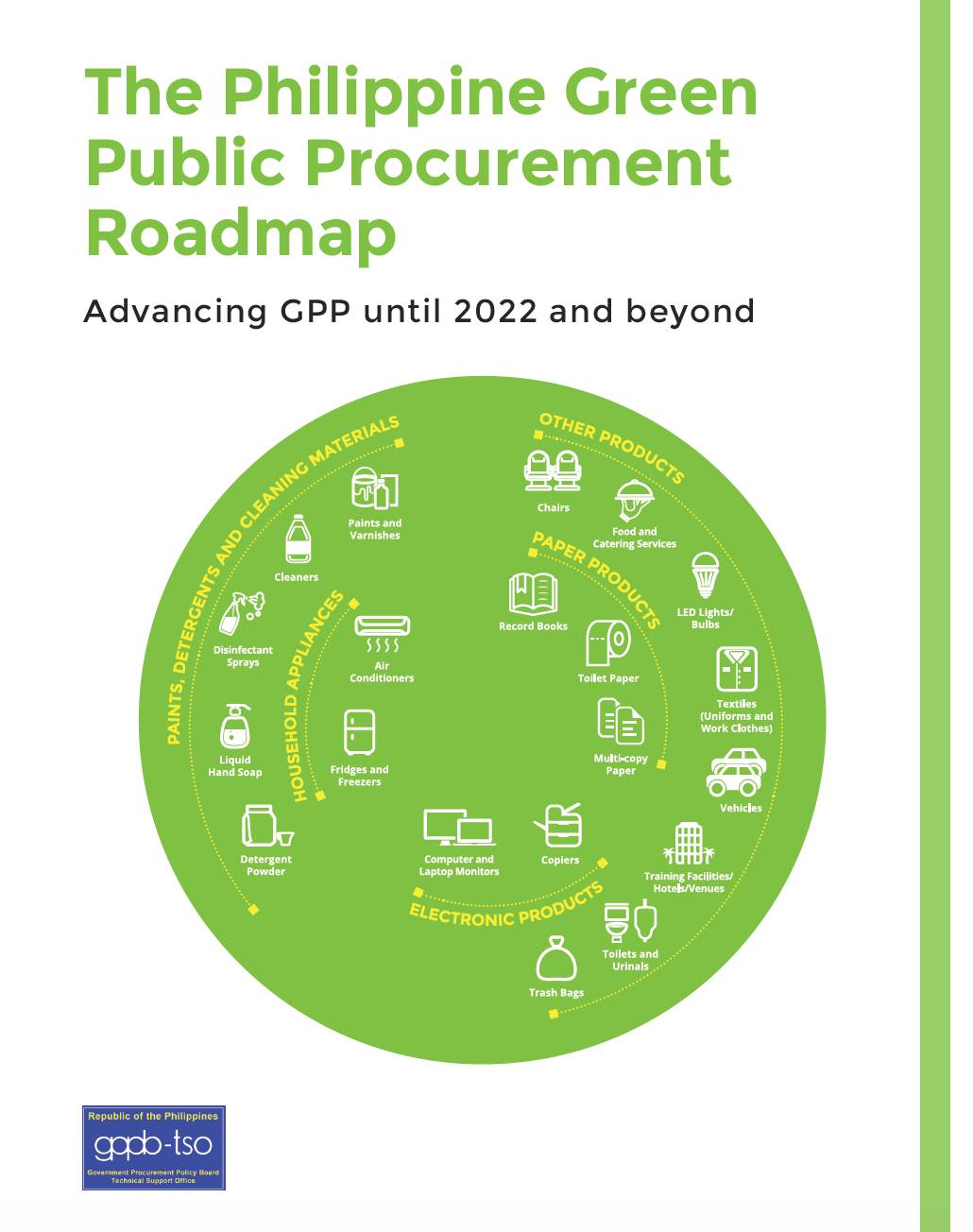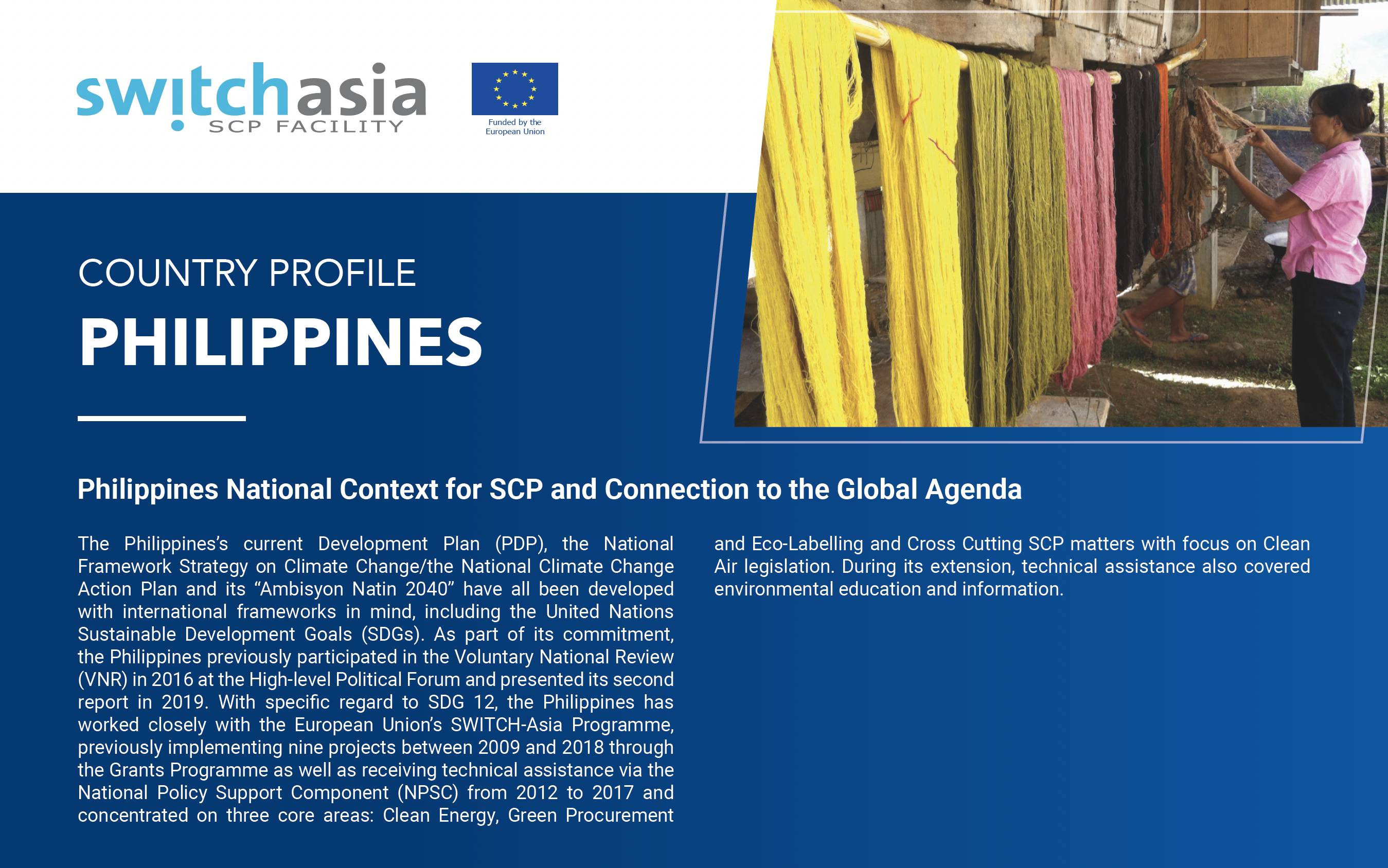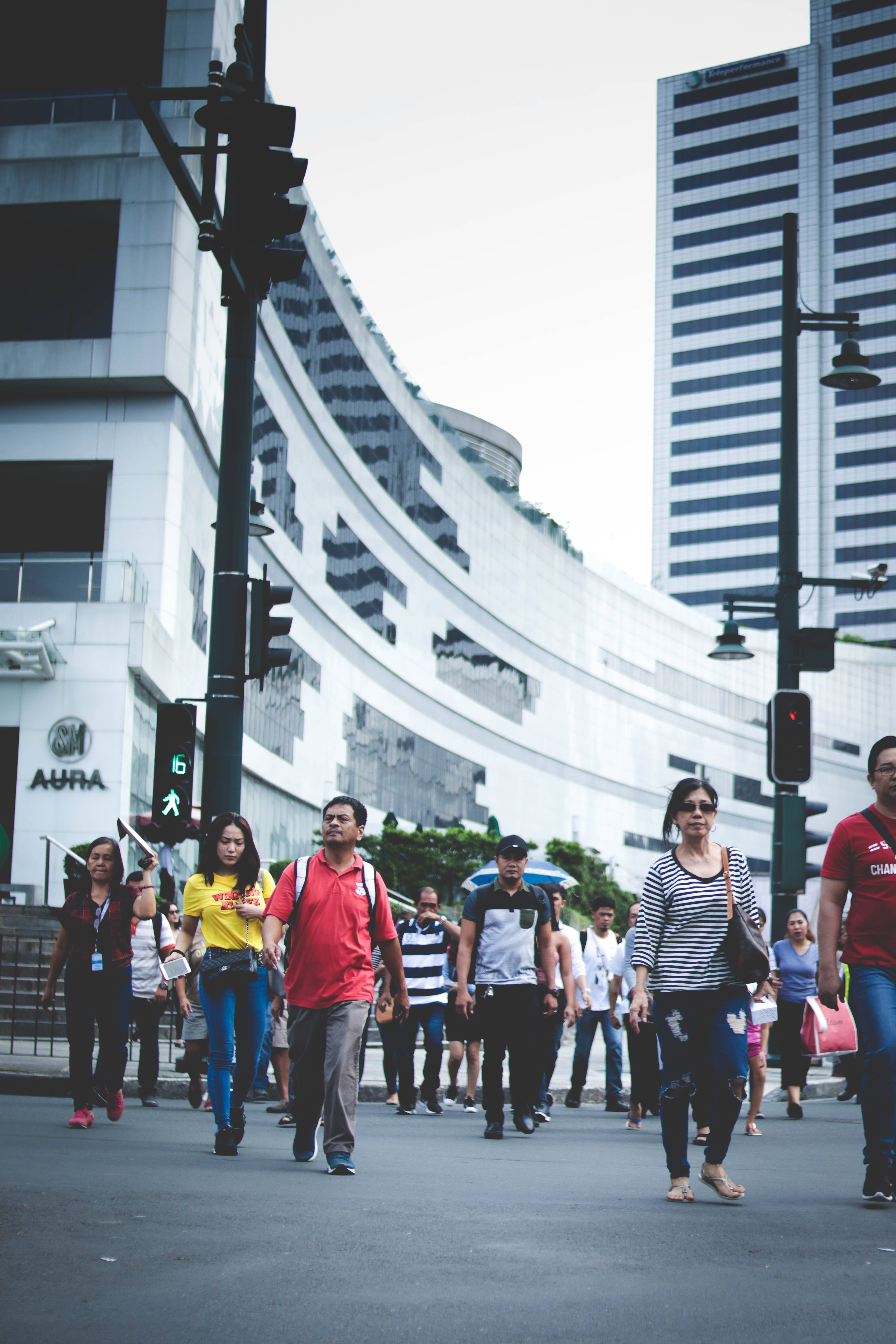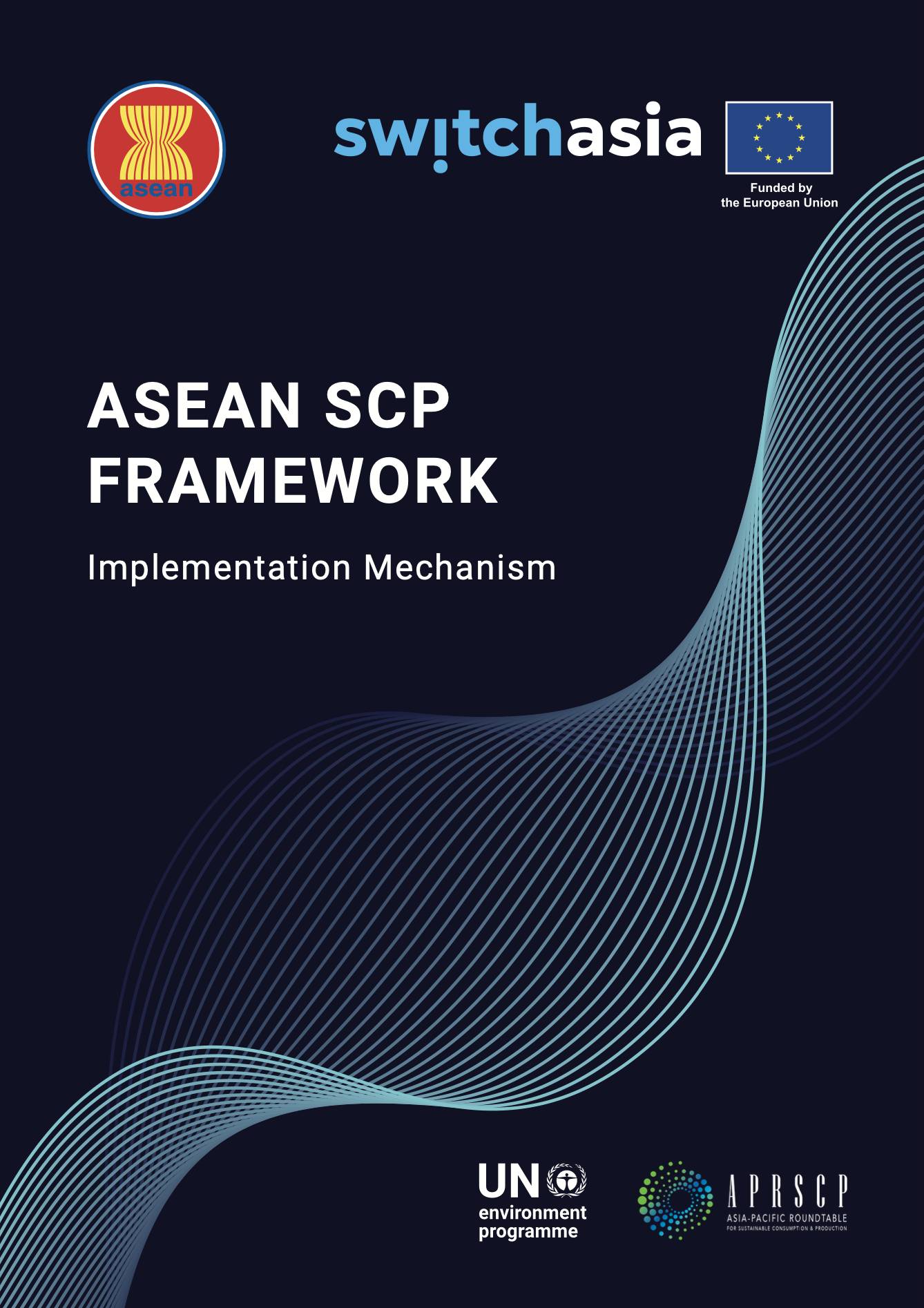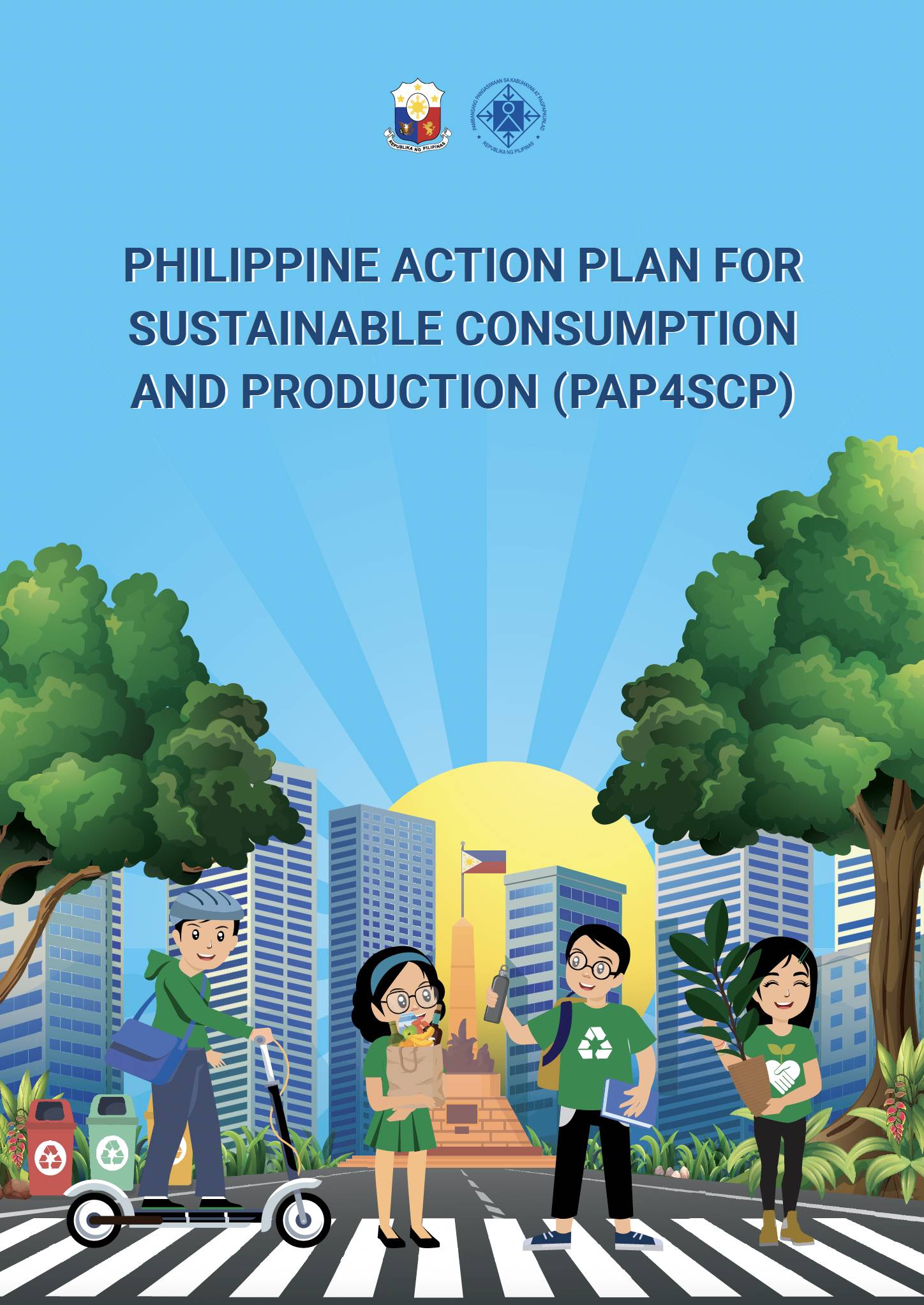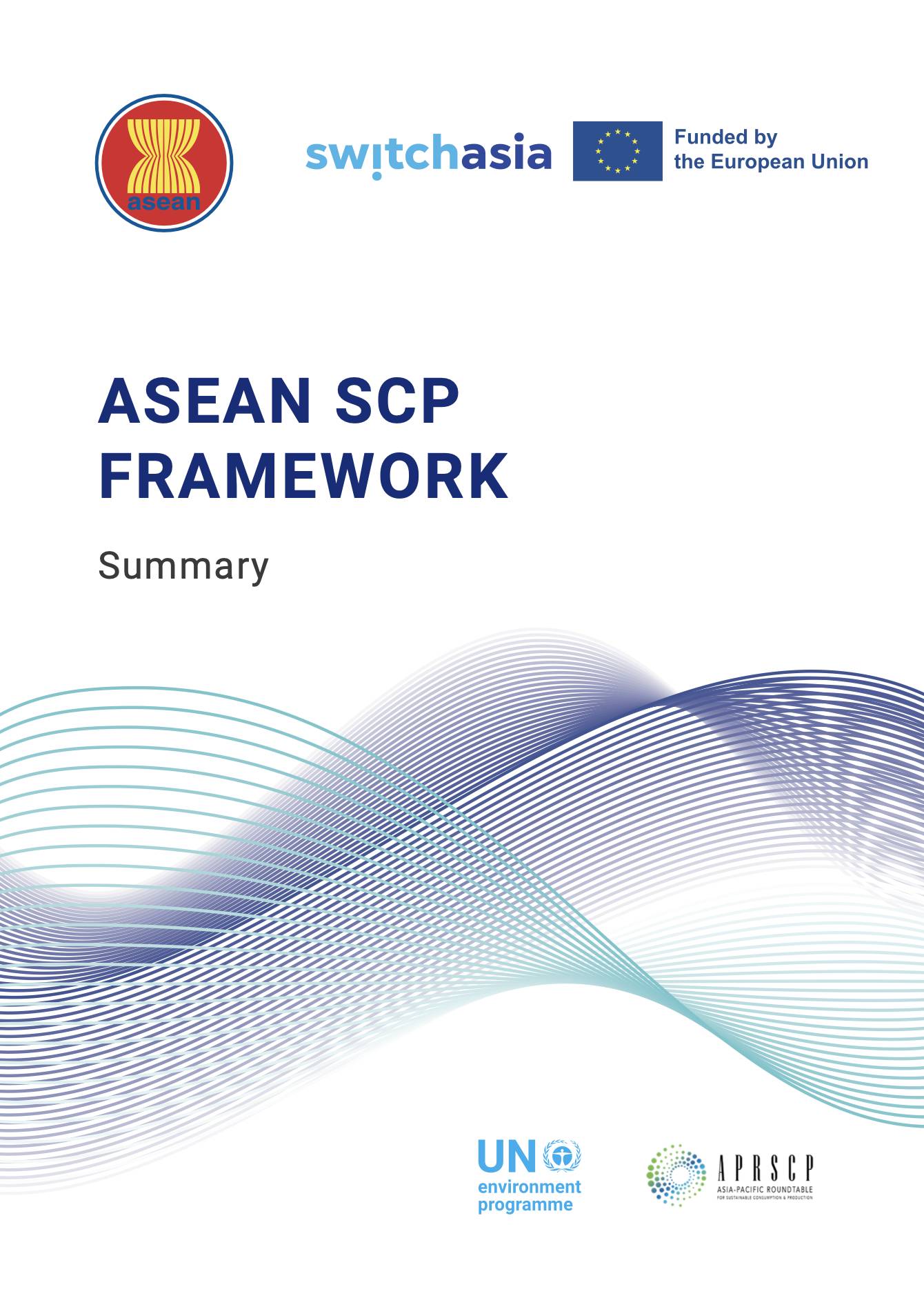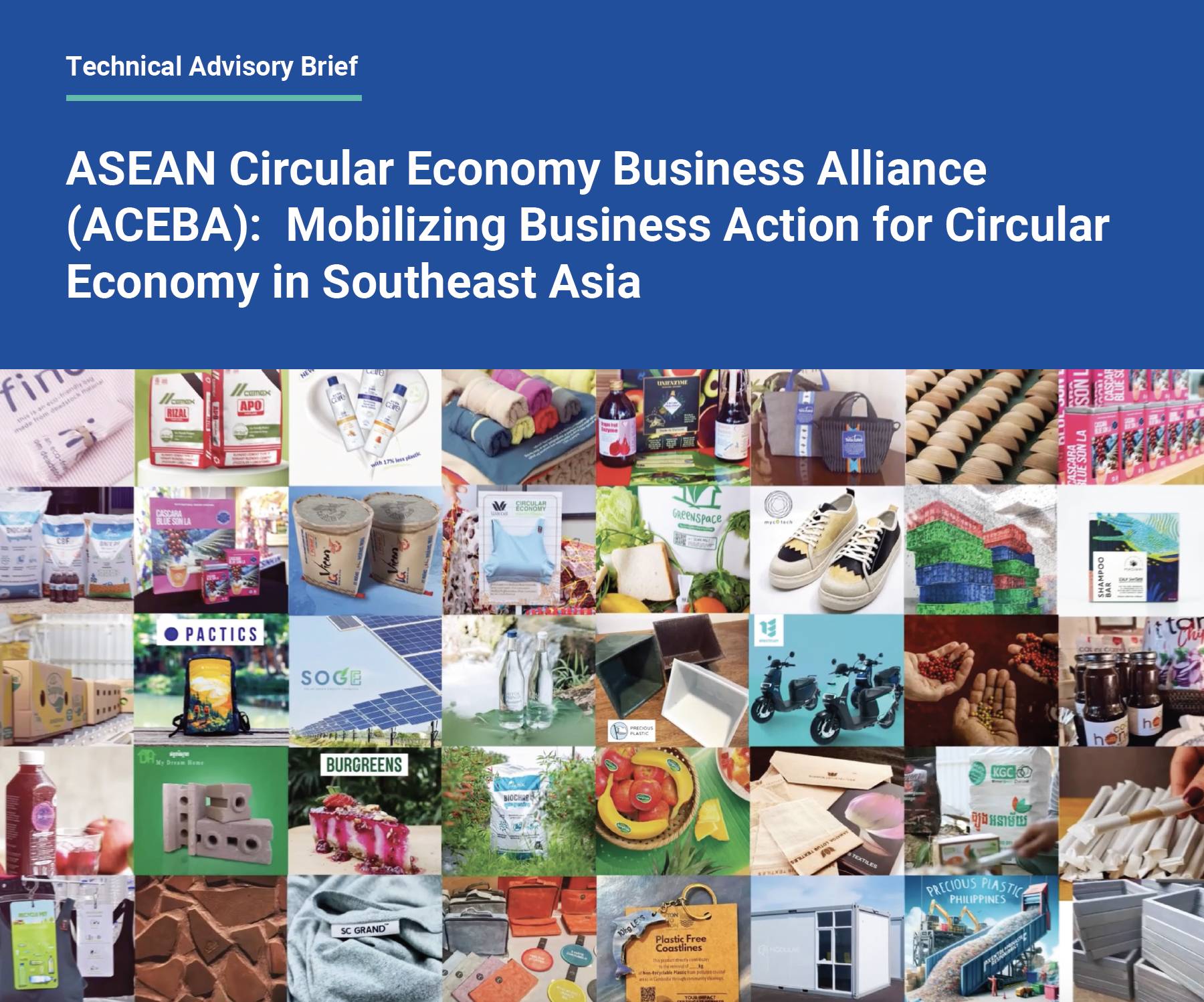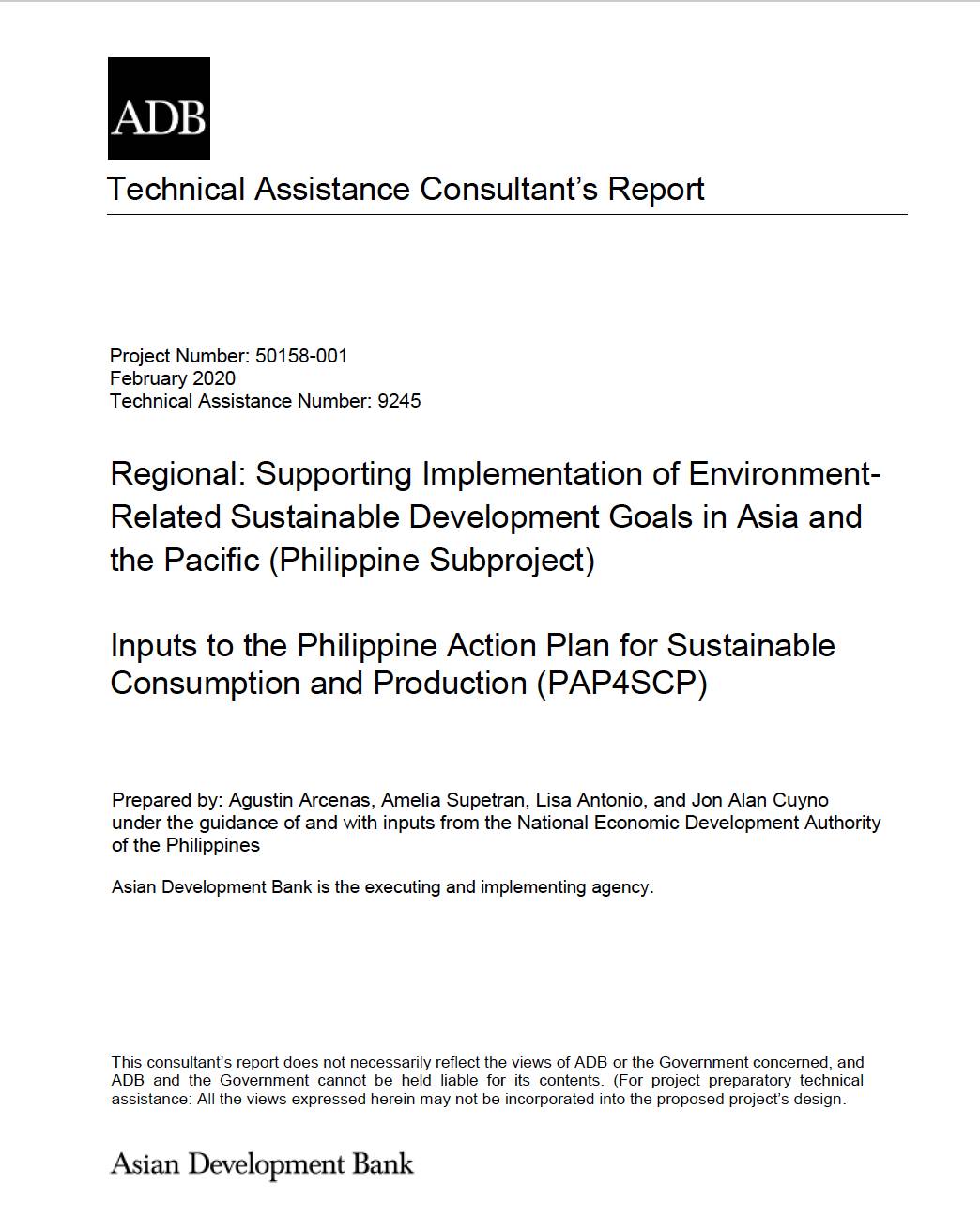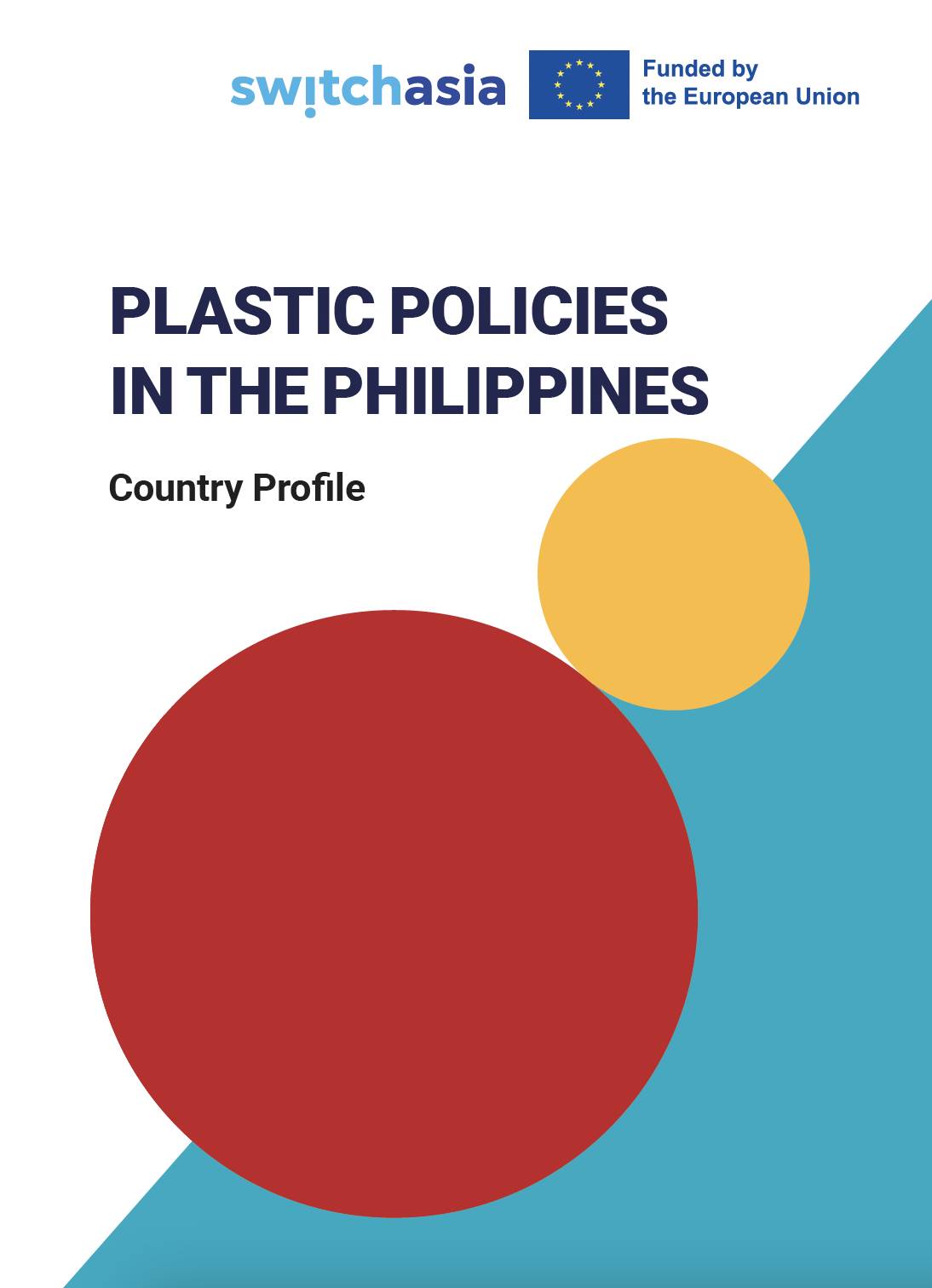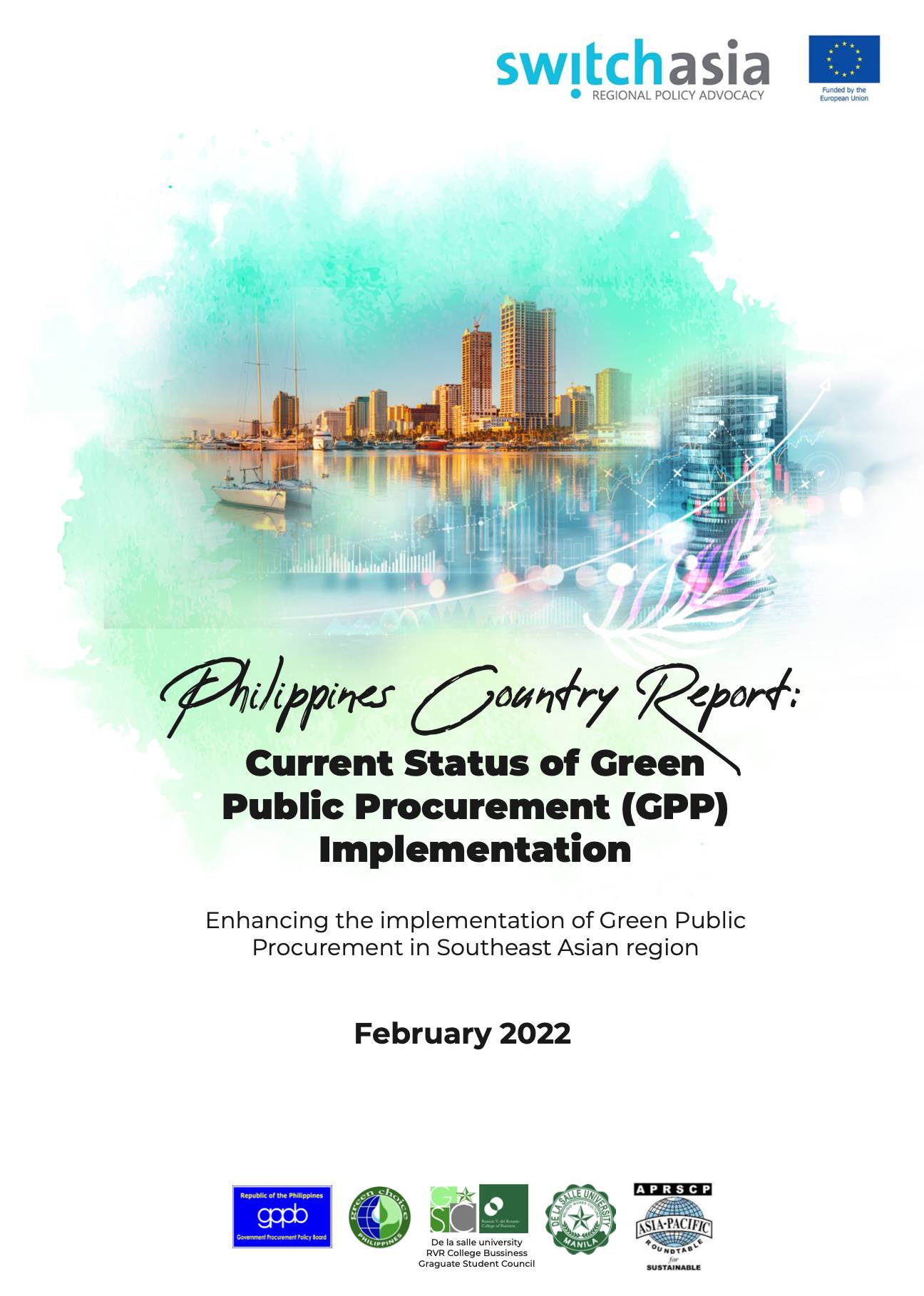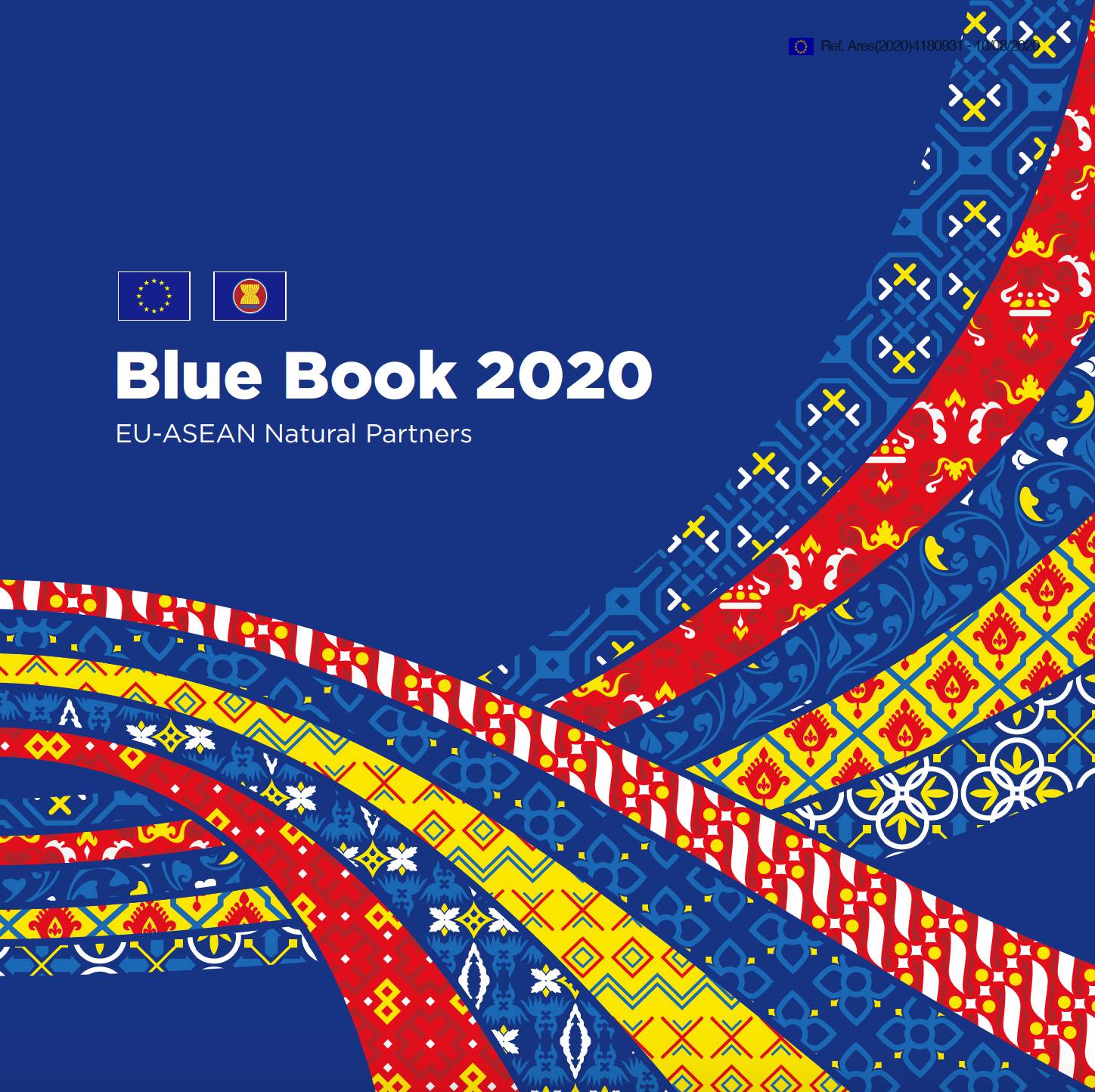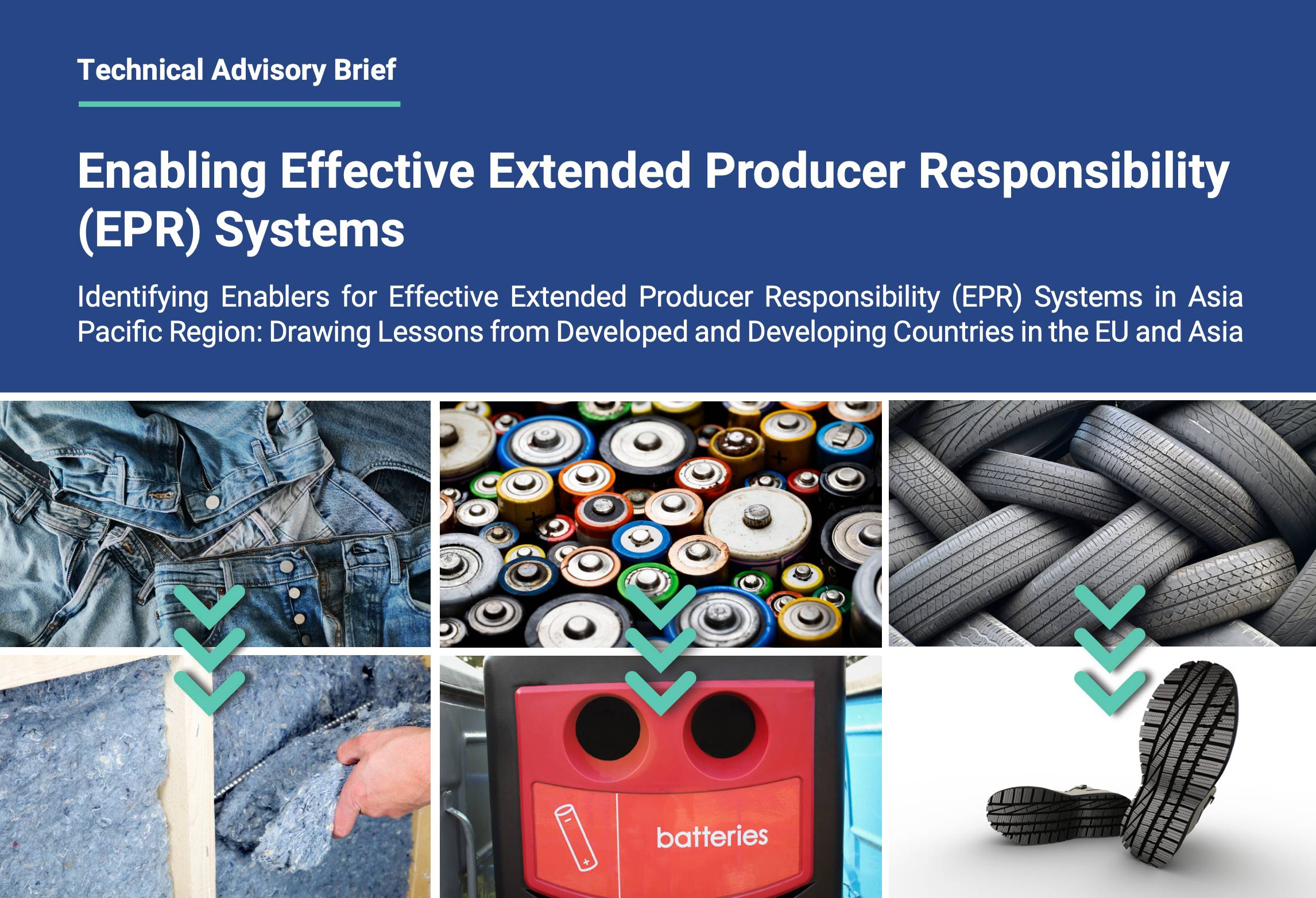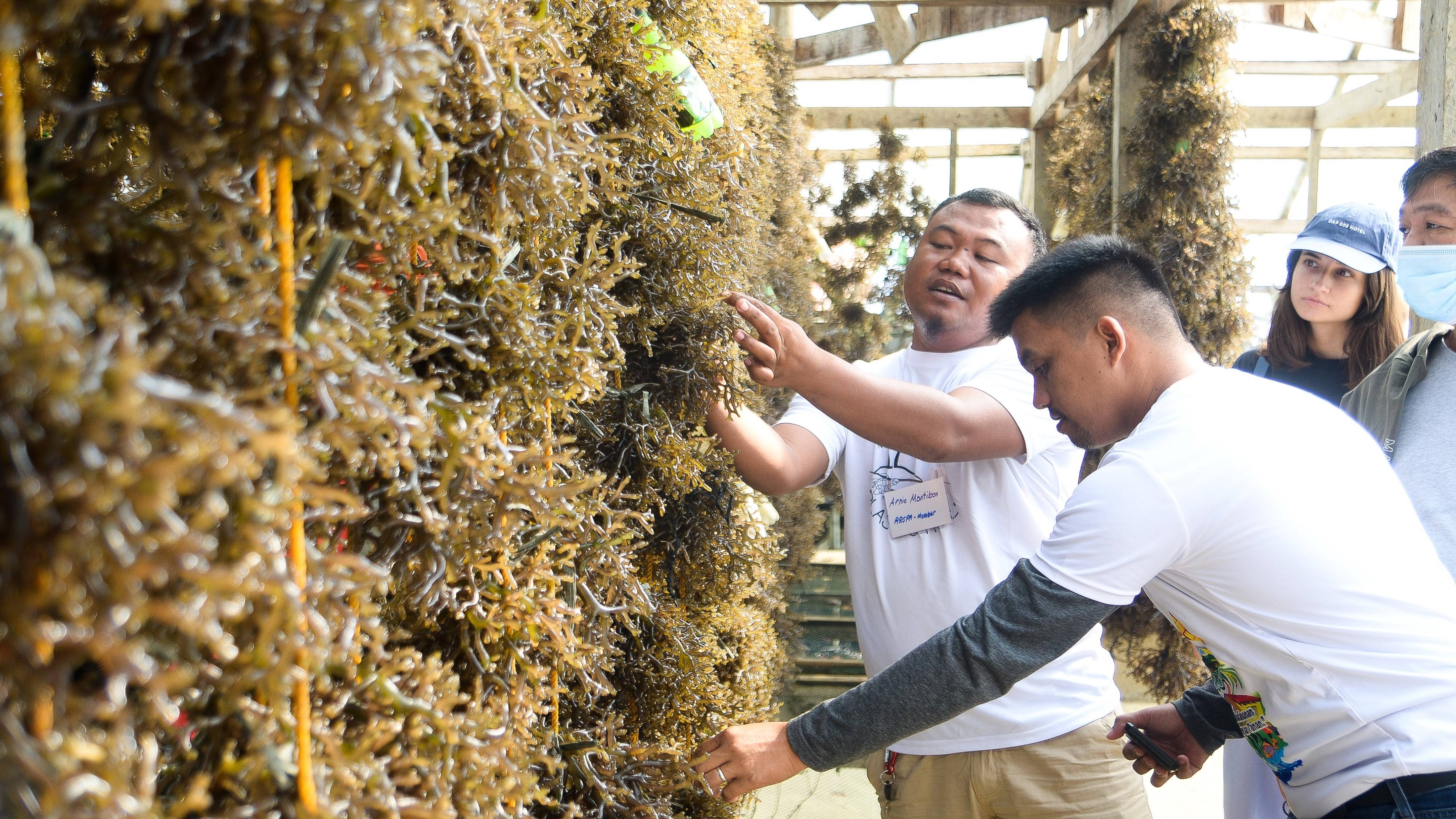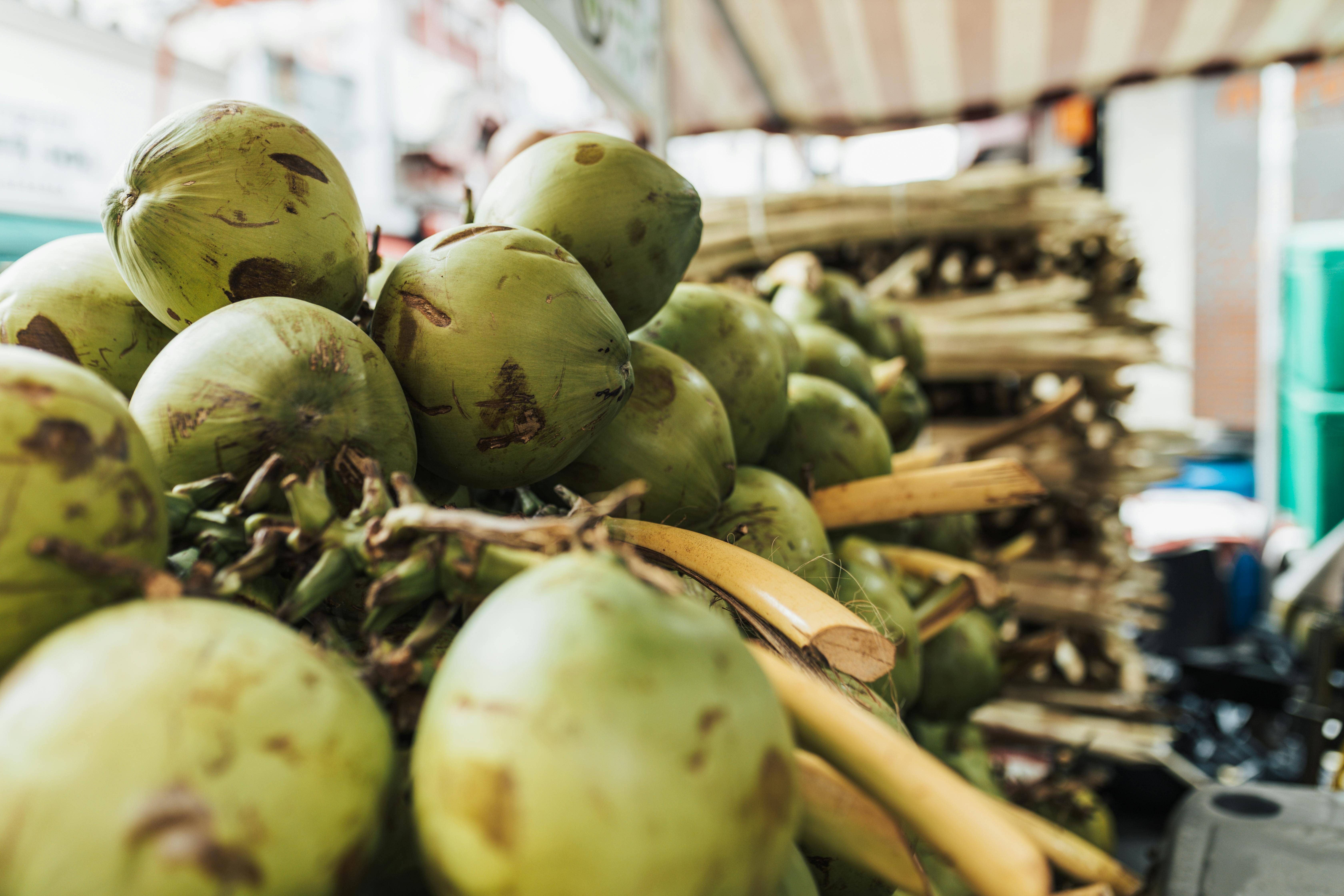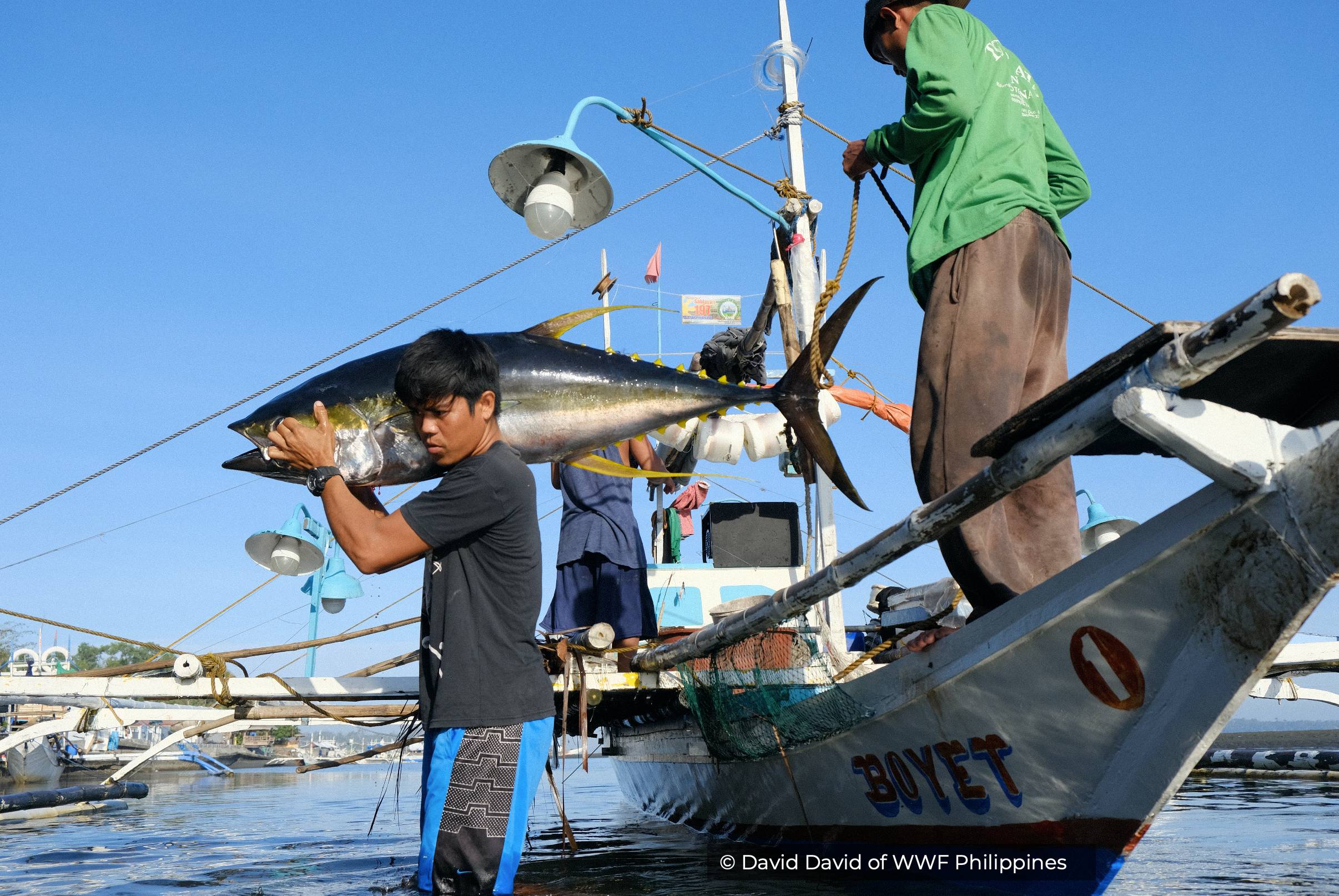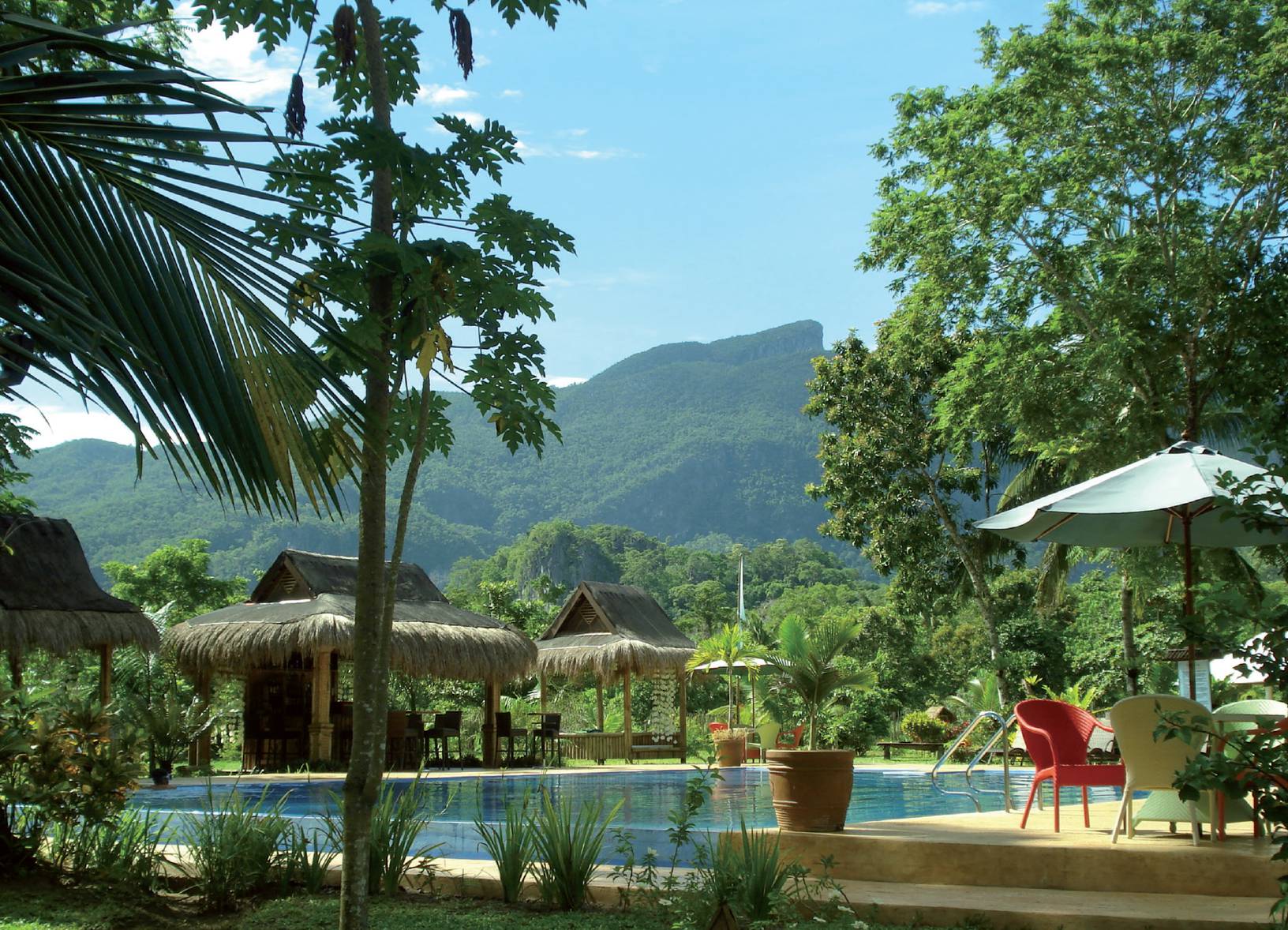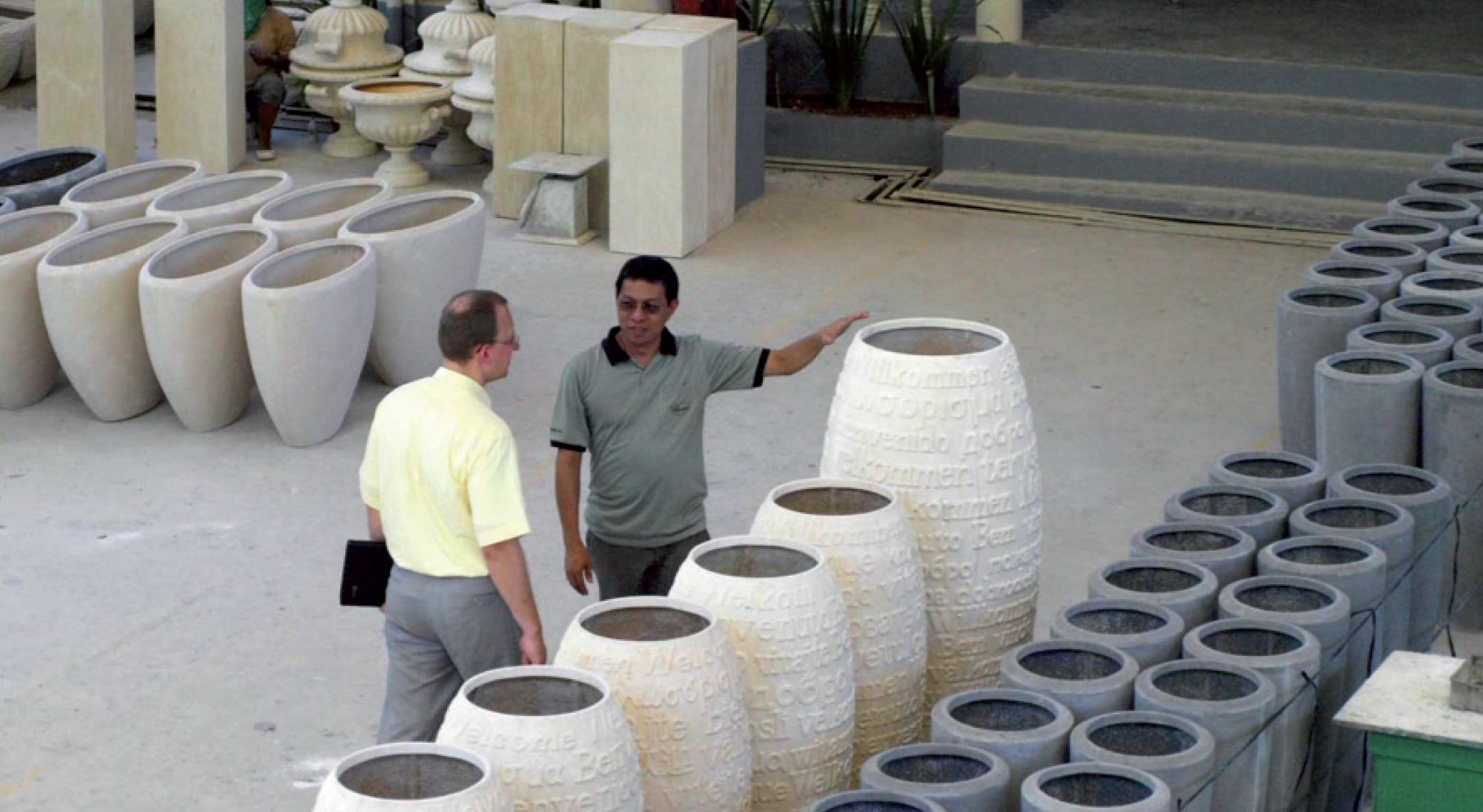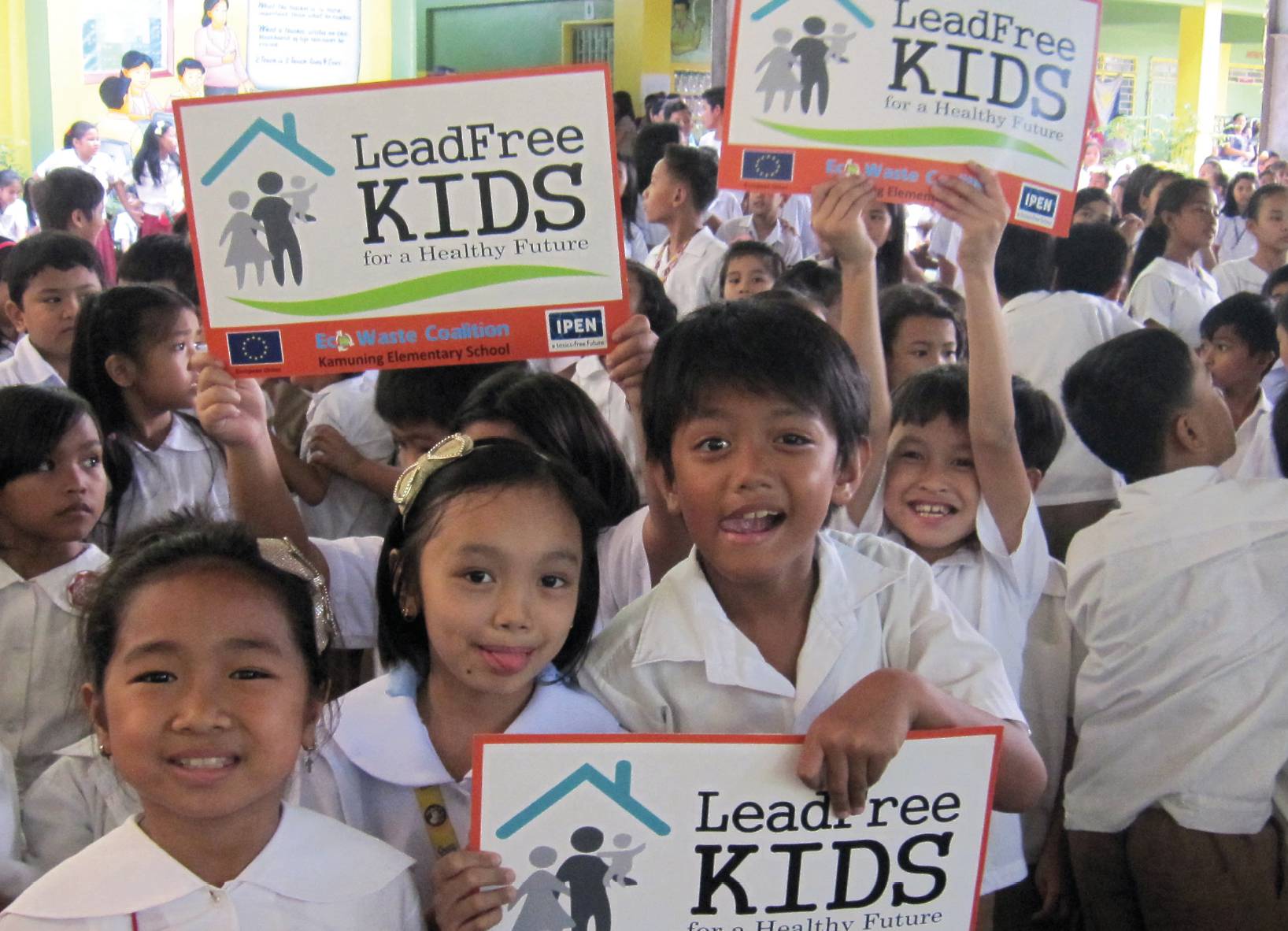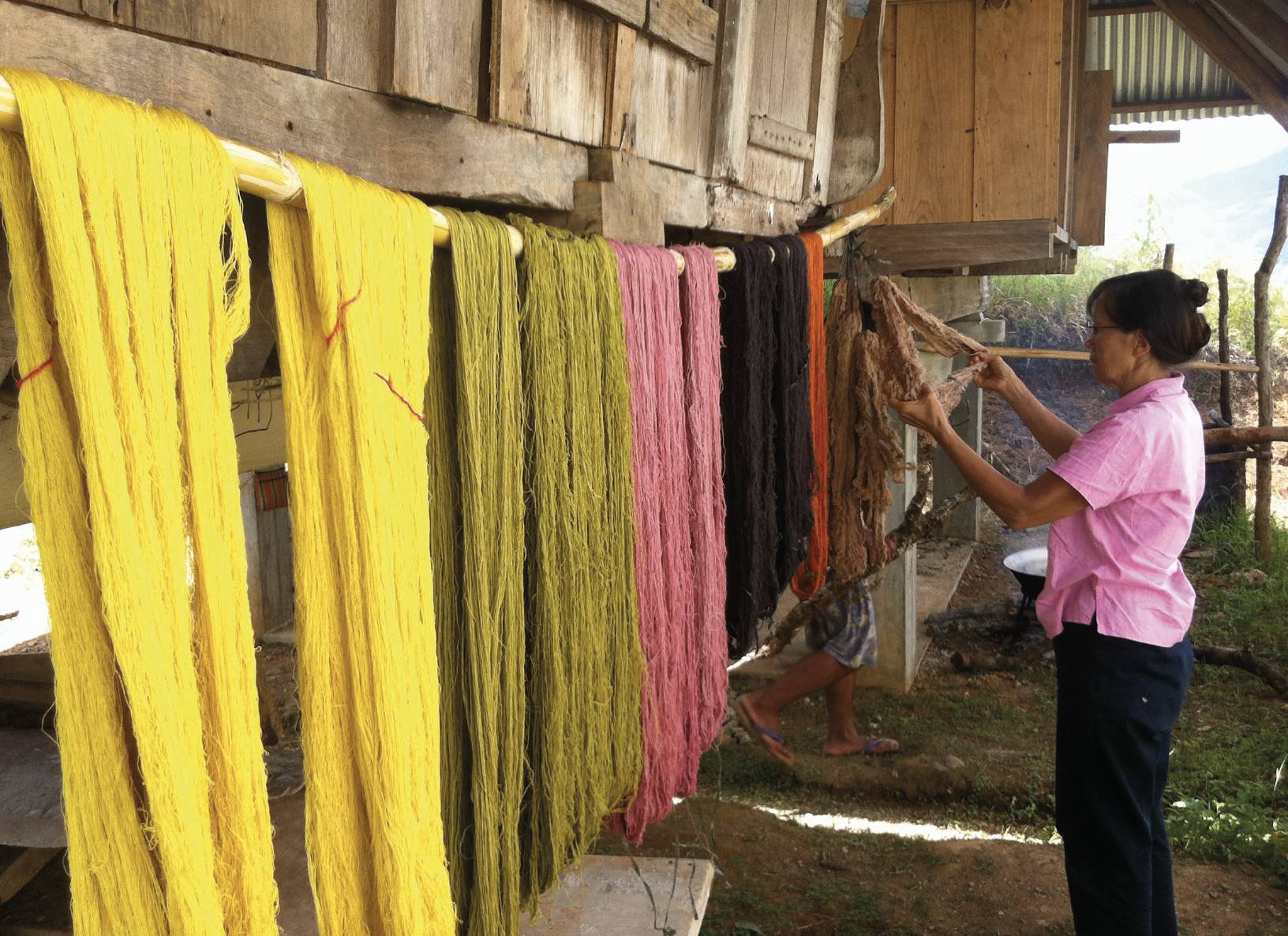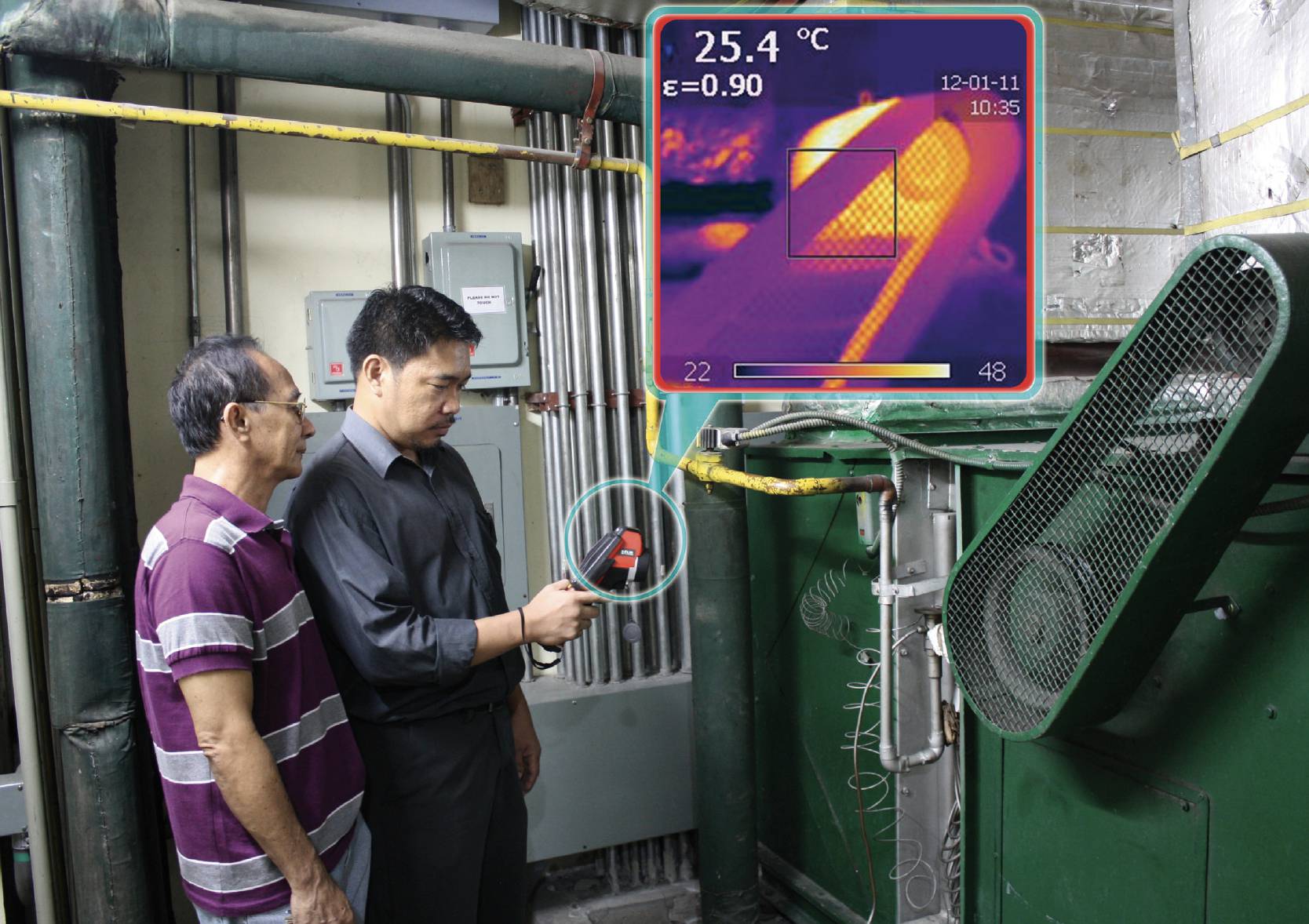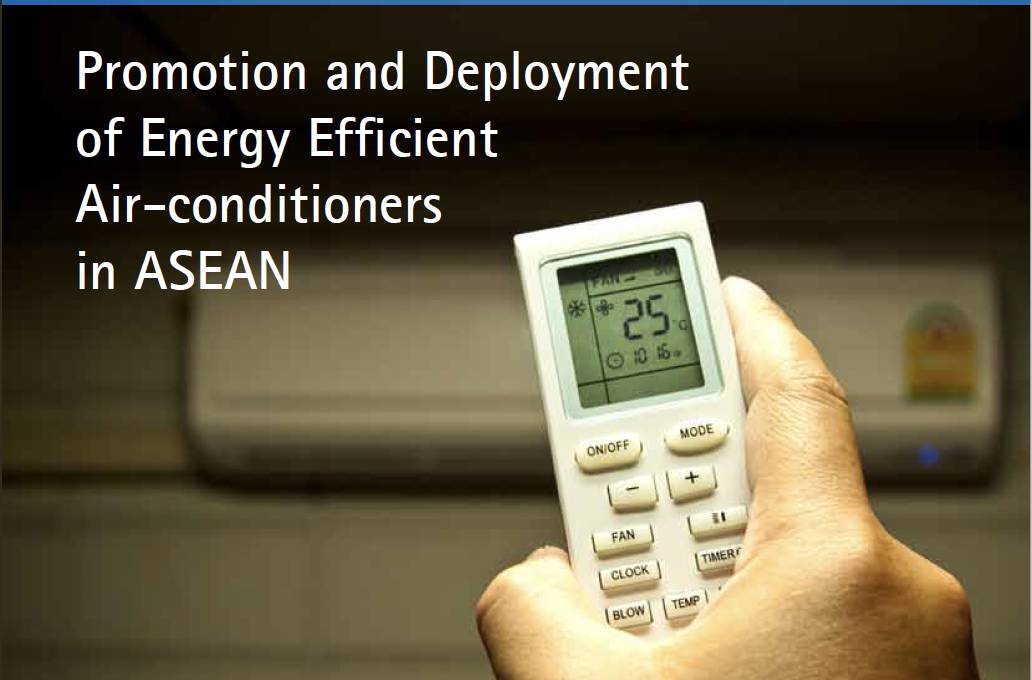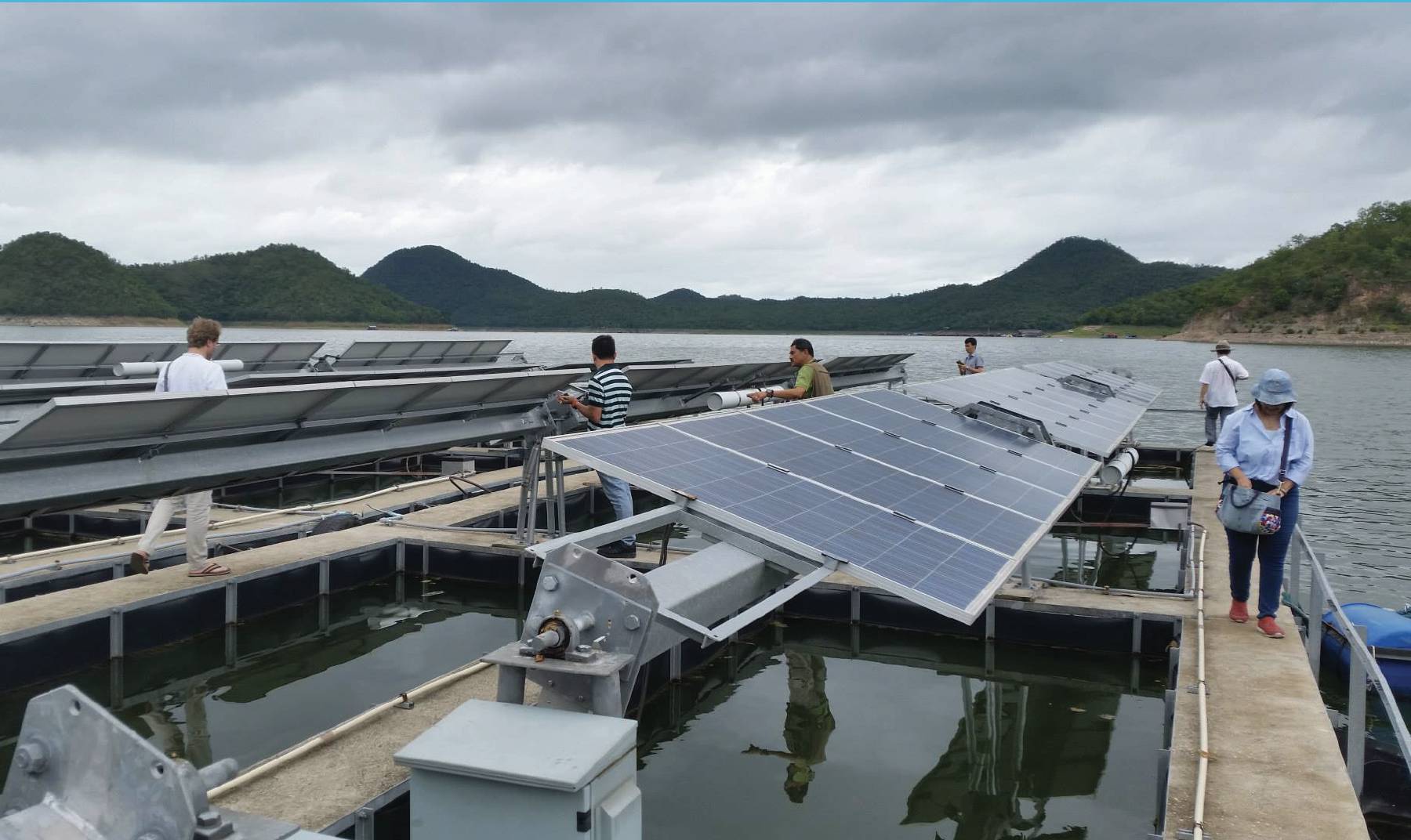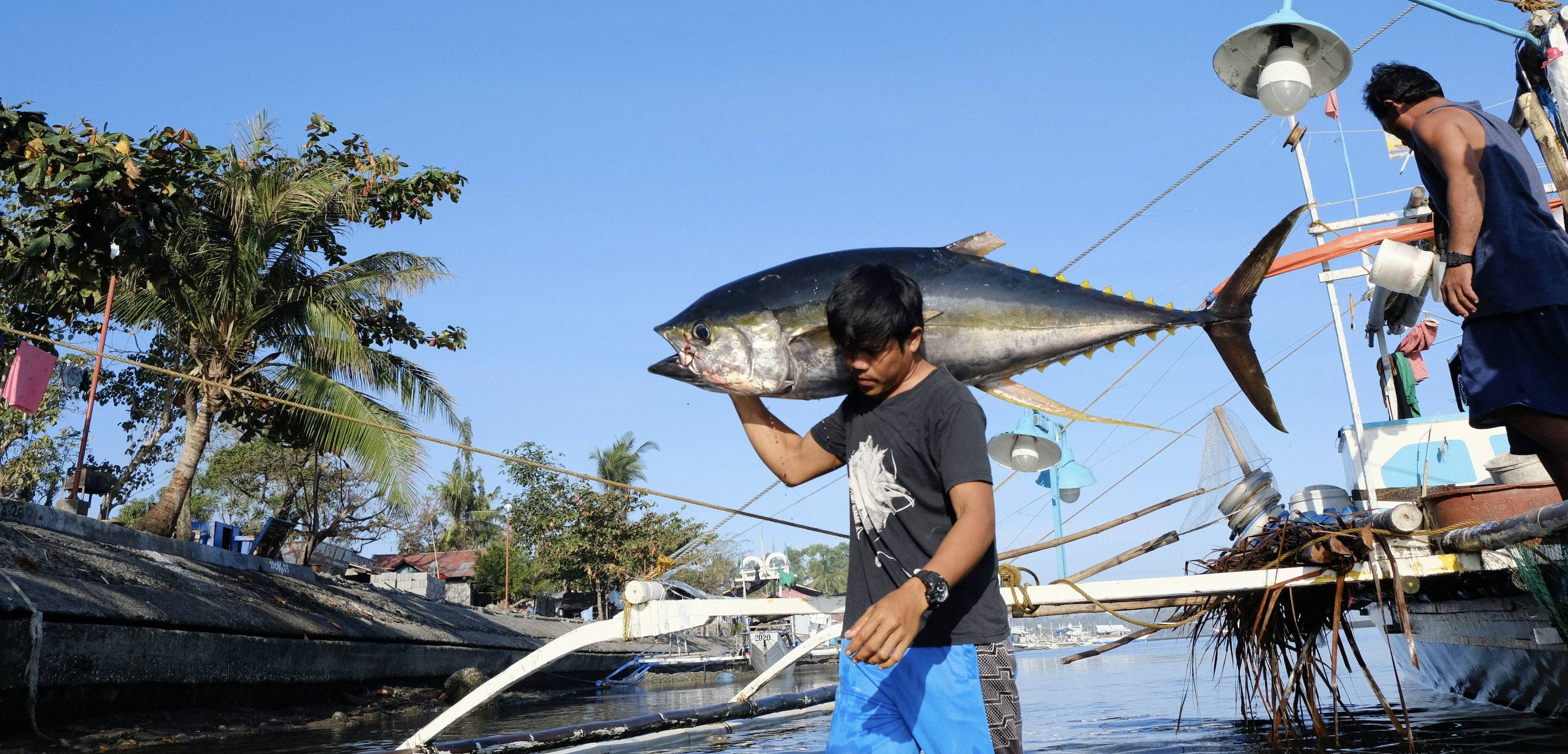
SCP Context
The Philippines National Context for SCP and Connection to the Global Agenda
The Philippines’s current Development Plan (PDP), the National Framework Strategy on Climate Change/the National Climate Change Action Plan and its “Ambisyon Natin 2040” have all been developed with international frameworks in mind, including the United Nations Sustainable Development Goals (SDGs). As part of its commitment, the Philippines previously participated in the Voluntary National Review (VNR) in 2016 at the High-level Political Forum while the country will present its second report in 2019. With specific regard to SDG 12, the Philippines has worked closely with the European Union’s SWITCH-Asia Programme, previously implementing nine projects between 2009 and 2018 through the Grants Programme as well as receiving technical assistance via the National Policy Support Component (NPSC) from 2012 to 2017 and concentrated on three core areas: Clean Energy, Green Procurement and Eco-Labelling and Cross Cutting SCP matters with focus on Clean Air legislation. During its extension, technical assistance also covered environmental education and information.
Challenges
- While the country states its vision of a green economy in the Philippines Development Plan 2011 – 2016 and numerous related policies are in place, a coordinating framework is lacking without a single policy or plan specifically designed for SCP.
- Consumers lack awareness of options for sustainable consumption and an understanding of life cycle assessment, which needs to be simplified.
- SMEs, which make up a significant portion of businesses in the Philippines, do not have adequate access to technical and financial assistance to improve sustainable production practices.
- Informal settlements make many SCP issues more difficult to address, such as collection and disposal of waste material.
- Natural resource demands continue to increase while sustainable management faces additional threats from climate change impacts.
Priorities
In addition to responding to the challenges, there are key sectors and activities that will promote overall effectiveness SCP efforts and the long-term success of the SDG implementation including:
- With the energy demand forecast to grow by 80% in the Philippines between 2017 and 2040, renewable energy and energy efficiency are critical for the country’s economic development.
- Sustainable tourism in the Philippines is becoming more important with the increased level of employment and income opportunities coming from the tourism industry while recognizing these activities depend on the sustainable use and management of natural resources.
- Waste management, and solid waste management is particular, is important in highly urbanized areas of the Philippines where an effective waste management system will determine the level of impacts on public health, environmental quality and the quality of life.
- Marine litter, especially from single-use plastics, is a national priority with the overwhelming amount of debris in the coastal waters of the Philippines.
- Other key sectors include climate change mitigation, efficient cities, sustainable industry and low carbon manufacturing strategies, sustainable lifestyles and education, and Green Public Procurement (GPP) and eco-labelling.
Opportunities
- With the support of SWITCH-Asia, facilitate policy dialogues within and between stakeholders e.g. the National Ecolabelling Programme of the Philippines (NELP), Socioeconomic Planning and Director General of the National Economic and Development Authority (NEDA) among other key entities.
- Connect related projects and needs to currently existing larger SCP initiatives e.g. “Sustainable Lifestyle and Education”, “Ecotourism”, “SCP Outreach” and “Sustainable Textile” Initiatives as well as to the UN 10YFP programmes, to find synergy and multiply the impacts.
- Further build capacity of government, business, consumers and civil society on SCP, including integration of SCP concepts into the education system and building awareness on eco-labelling among consumers.
- Provide adequate and needed assistance to SMEs to induce and enable eco-innovation towards resource efficiency and at the same time looking at the national development plan through the lenses of the SDGs in general, and SDG12 in particular.
The Philippines has also drafted a National Action Plan (NAP) on SCP led by the National Economic Development Authority supported by the Asian Development Bank. Opportunities will be to support the government on the implementation of the NAP on SCP.
SWITCH-Asia Activities
2018
SCP Facility
- Preliminary assessment of SCP related policies, activities, needs/gaps, and opportunities.
Regional Policy Advocacy Component (RPAC)
Facilitated the participation of Filipino key-stakeholders in the following regional/ sub-regional activities:
- Asia Pacific Low Carbon Lifestyles Challenge (19-22 Mar 2018), hosted by Thailand, regional level
- Transforming Asia Pacific: Innovative Solutions, Circular Economy and Low Carbon Lifestyles (17-19 Sep 2018), hosted by Thailand, regional level
- Asian Circular Economy Leadership Academy (3-8 Dec 2018), hosted by Thailand, regional level
2019
Regional Policy Advocacy Component (RPAC)
Facilitated the participation of Filipino key-stakeholders in the following regional/ sub-regional activities:
- “Sustainability Reporting – Thinking Circular Economy by Businesses” - This event was organised back-to-back with 2019 Asia Pacific Forum on Sustainable Development (27 Mar 2019), hosted by Thailand, regional level
- Businesses Accelerating Inclusive Green Economies – "Leaving No One Behind” - Side event on the Responsible Business and Human Rights Forum co-organised by the Royal Thai Government, OECD, United Nations Development Programme (UNDP), ESCAP, International Labour Organization (ILO) and with the participation of the UN Working Group on Business and Human Rights (11 Jun 2019), hosted by Thailand, regional level
- 2019 Southeast and Northeast Asia Policy Dialogue and Training on “Harmonizing SPP practices and Measuring SPP benefits” - The activity took place in parallel with a series of events related to green procurement organized by the China Environmental United Certification Center (CEC) (23 - 25 Oct 2019), hosted by China, regional level
- WEBINAR: SDG 12.1 Reporting for SWITCH-Asia Countries – Connecting the dots between actions and reporting (5 Nov 2019), regional level
- Policy Dialogue on SDG12 Reporting (21 Nov 2019), hosted by Vietnam, regional level
- 2019 SWITCH-Asia Leadership Academy on Circular Economy (2-6 Dec 2019), hosted by China, regional level
- "Supporting decision making on SCP through training on Sustainable Procurement” - This event was organised back-to-back with International Conference on Sustainable Energy and Green Technology 2019 (11 Dec 2019), hosted by Thailand, regional level
2020
Regional Policy Advocacy Component (RPAC)
Facilitated the participation of Filipino key-stakeholders in the following regional/sub-regional activities:
- SWITCH2Green Meeting - RPAC initiated the discussion and shared the first report in 2020. (April 2020)
- MOVING THE NEEDLE ON CLIMATE CHANGE – The event was co-organised by the UNESCAP as a part of the 2020 Virtual United Nations Responsible Business and Human Right Forum (RBHRF) (10 Jun 2020), regional level
- WORLD ENVIRONMENT DAY 2020 – A media kit was provided to call for action to promote SCP as a part of the 2020 World Environment Day (WED) celebration (5-7 Jun 2020), regional level
- Intervention in regional forum: Webinar on Sustainable Lifestyles for Plastics & Packaging Waste Management During a Pandemic COVID-19 (6 Aug 2020), regional level
- SCP in Tourism: Opportunities and Challenges with COVID-19 (8 Oct 2020), regional level
- Innovation and Connectivity through Farm to Fork (13 Nov 2020), regional level
- Sustainable Lifestyles for SCP (19 Nov 2020), regional level
- Support to Steering Committee of SWITCH-Asia – Provide support for the annual Steering Committee Meeting to review each country proposed 2021 workplan (3 Dec 2020), regional level
- Regional Policy Dialogue on Circular Cities (4 Dec 2020), regional level
- Regional Dialogue Driving Mechanisms for Eco-Design in Asia (9 Dec 2020), regional level
- Leadership Academy on Circular Economy 2020 (14-18 Dec 2020), regional level
- Webinar: Innovations & Startups (16 Dec 2020), regional level
2021
Facilitated the participation of Filipino key-stakeholders in the following regional/sub-regional activities:
- Contextualising the Circular Economy for Action (4 Feb 2021), regional level
- Virtual Consultation: Mapping SCP in ASEAN Countries (17 March 2021), sub-regional level
- Technology for Circular Economy: A Prologue to the 2021 SWITCH-Asia Leadership Academy (25 March 2021), regional level
- Circular Economy and Sustainable Lifestyles Course (18 May 2021), regional level


